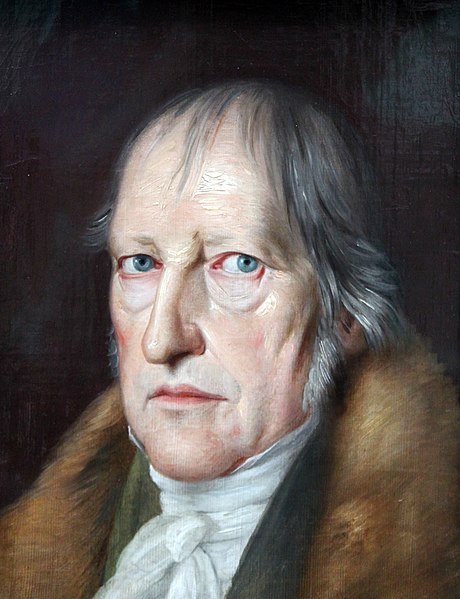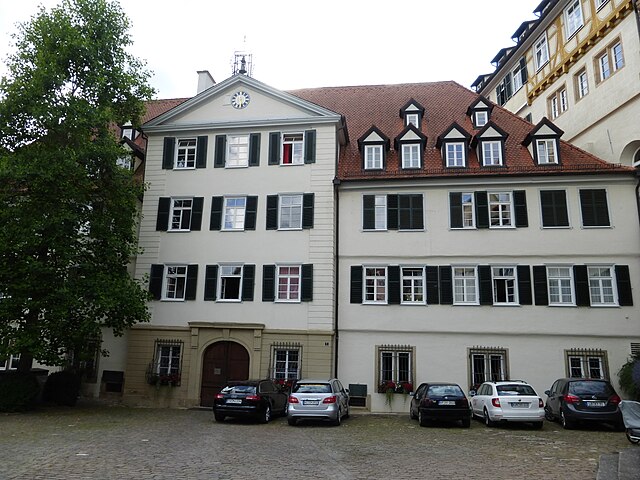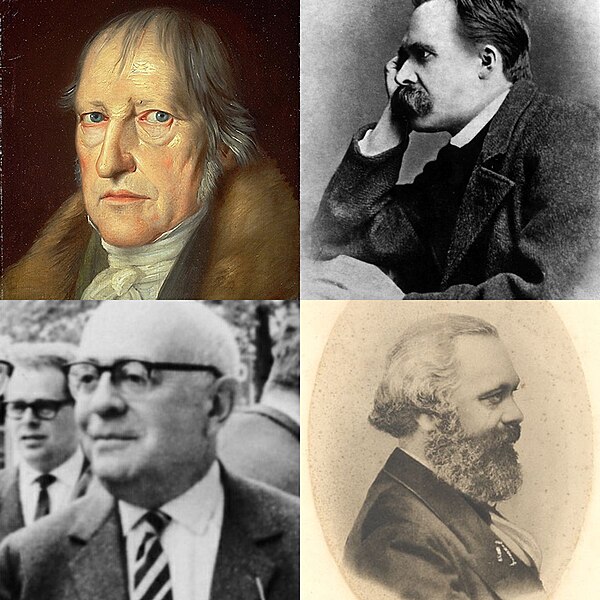Georg Wilhelm Friedrich Hegel
Georg Wilhelm Friedrich Hegel was a German philosopher and one of the most influential figures of German idealism and 19th-century philosophy. His influence extends across the entire range of contemporary philosophical topics, from metaphysical issues in epistemology and ontology, to political philosophy, the philosophy of history, philosophy of art, philosophy of religion, and the history of philosophy.
1831 portrait
The birthplace of Hegel in Stuttgart, which now houses the Hegel Museum
Hegel, Schelling, and Hölderlin are believed to have shared the room on the second floor above the entrance doorway while studying at this institute – (a Protestant seminary called "the Tübinger Stift").
The poet Friedrich Hölderlin (1770–1843) was one of Hegel's closest friends and roommates at Tübinger Stift.
German philosophy, meaning philosophy in the German language or philosophy by German people, in its diversity, is fundamental for both the analytic and continental traditions. It covers figures such as Gottfried Wilhelm Leibniz, Immanuel Kant, Georg Wilhelm Friedrich Hegel, Karl Marx, Friedrich Nietzsche, Martin Heidegger, Ludwig Wittgenstein, the Vienna Circle, and the Frankfurt School, who now count among the most famous and studied philosophers of all time. They are central to major philosophical movements such as rationalism, German idealism, Romanticism, dialectical materialism, existentialism, phenomenology, hermeneutics, logical positivism, and critical theory. The Danish philosopher Søren Kierkegaard is often also included in surveys of German philosophy due to his extensive engagement with German thinkers.
From left to right: Georg Wilhelm Friedrich Hegel, Friedrich Nietzsche, Theodor W. Adorno, Karl Marx.
Leibniz
Immanuel Kant
Johann Gottlieb Fichte (1762–1814)








